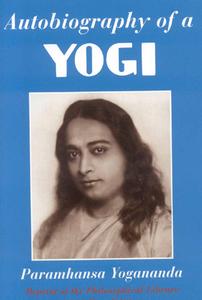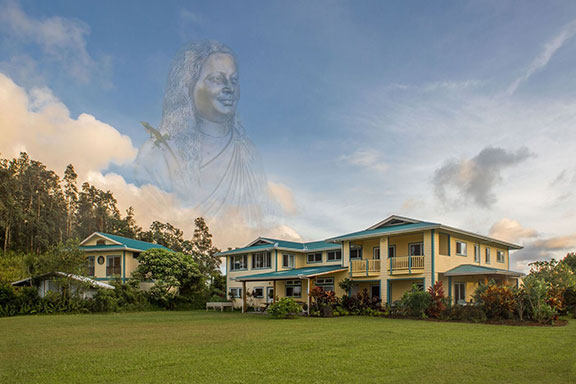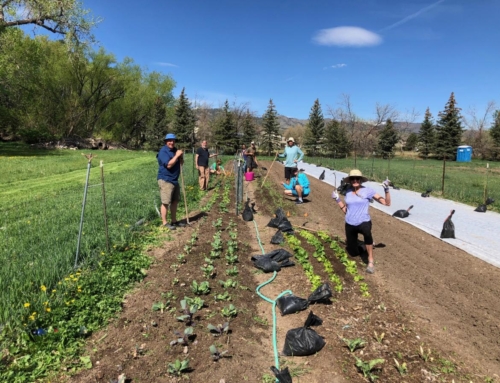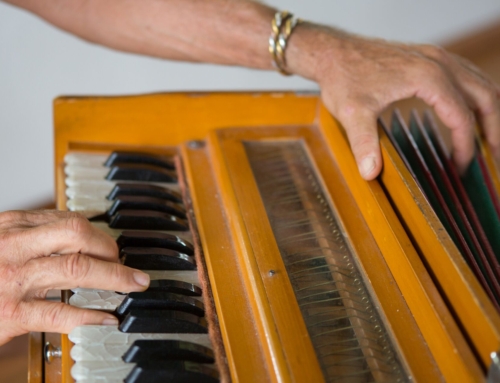In a 1932 issue of East-West Magazine, Swami Paramhansa Yogananda published an article about World Brotherhood Colonies in which he wrote:
“…little-group models of ideal civilizations must be started in every community for happy and peaceful living, with much meditation and much chivalry shown. These groups should be well balanced, financially secure, and they should exist always in high thinking and plain living.”
When he wrote this, Yogananda was responding to the despondency of depression-era America – a society overburdened by the perennial human defects of greed and depression – with his vision of alternative “Utopias” that he frequently referred to as “World Brotherhood Colonies.” While Yogananda did not successfully establish one of these communities during his own lifetime, since his passing a handful of his disciples have carried forward his vision with relative success.
Swami Kriyananda, who founded Ananda Village in Nevada City in 1968, was one of the foremost among these disciples. Kriyananda often referred to his World Brotherhood Colony as a “City of Light” which offers a living model for a socially and ecologically sustainable community grounded in the yoga teachings of his guru, Yogananda.
Cities of Light
 The metaphor of “Light” is found across spiritual traditions, and yoga certainly bears no exception. Yogananda’s kriyā-yoga practices were intended to make one’s own dimly-lit light shine progressively brighter:
The metaphor of “Light” is found across spiritual traditions, and yoga certainly bears no exception. Yogananda’s kriyā-yoga practices were intended to make one’s own dimly-lit light shine progressively brighter:
“The body of the average man is like a fifty-watt lamp. Through gradual and regular increase of Kriya, man’s body is finally fitted to express the infinite potentials of cosmic energy – the first materially active expression of spirit.” (Paraphrased from pages 234-235 of Autobiography of a Yogi)
When building his “City of Light,” Swami Kriyananda sought to channel this light into the world via the service work of Ananda Village’s numerous devoted citizens. Doing so required, however, renunciation of the selfish individualism of consumer-capitalist American society. The imperatives of communism, the other less popular political option, also would not do. As Kriyananda once wrote, communism is merely materialism “trying to create an aura of respectability” which, as history has shown, is fraught with its own set of problems.
The only other solution, Kriyananda thought, was to form cities which, rather than prioritizing the accumulation and distribution of material wealth, would instead encourage citizens to pursue divine consciousness through the daily practices of selfless-service, meditation, devotional music, and philosophical study. Inverting individual’s priorities in such a way would never create heaven on earth, but would at least, as Kriyananda once hoped, “reflect heaven on earth.” Controversies and legal disputes notwithstanding, Ananda Village continues to flourish in Nevada City after Kriyananda’s passing in 2013, as do his other nine communities around the world.
Polestar Gardens
 In addition to Kriyananda’s communities, several other notable World Brotherhood Communities exist and continue to disseminate the teachings of Yogananda: Sunburst Sanctuary (est. 1970), Clear Light Community (est. 1970), and, of course Polestar Gardens on the Big Island of Hawaii.
In addition to Kriyananda’s communities, several other notable World Brotherhood Communities exist and continue to disseminate the teachings of Yogananda: Sunburst Sanctuary (est. 1970), Clear Light Community (est. 1970), and, of course Polestar Gardens on the Big Island of Hawaii.
Michael and Ann Gornik, both former long-time residents of Ananda Village, founded Polestar Gardens in 2000. While carrying over much of the influence from their experience at Ananda, they have established a unique and successful non-profit intentional community that continues to spread the teachings of Yogananda.
Through a variety of on and off-site programs, community members, interns and visitors receive hands on training in rājā-yoga (i.e., as Yogananda and other early 20th century gurus interpreted it: a steady mix of meditation, service, devotional chanting, and philosophical study) on a daily basis. Service activities include participation in organic gardening and tropical agriculture, community service projects, and mentoring programs for local high school youth, to name a few.
On Monday nights after dinner, expect to dive into a deep philosophical discussion at the weekly rāja-yoga discussion group. And on every Wednesday night, you’ll meet people from all over the East side of the island who come for kīrtan, an event that involves group singing and chanting of devotional music. This event is always followed by a vegetarian potluck where you’re bound to encounter many friendly faces.
Sustainability
Intentional communities have low success rates comparable to those of start-up businesses. Perhaps one of the characteristics of those few that do succeed is their willingness to stay integrated with the outside world and local community. In other words, by embracing the world and understanding one’s intentional community to be dependent upon it, and by not renouncing some of the basic aspects that enable society to function, World Brotherhood Colonies like Polestar are able to sustain themselves for the long-haul. In the process, they also have a positive influence upon, and indeed transform, the community around them.
Rather than a utopia, Polestar is a real place with real people working diligently. Members live simply while working determinedly to take care of the land upon which they live and from which they receive portions of their daily food. The dedicated work of those at Polestar creates an atmosphere supportive of earnest spiritual practice. Members of the community come from a variety of cultural and socio-economic backgrounds with a sincere desire to reflect a ray of the divine into daily life. Come visit to see how you can experience and indeed contribute to the manifestation of what Yogananda once envisioned: “high thinking and plain living.”




